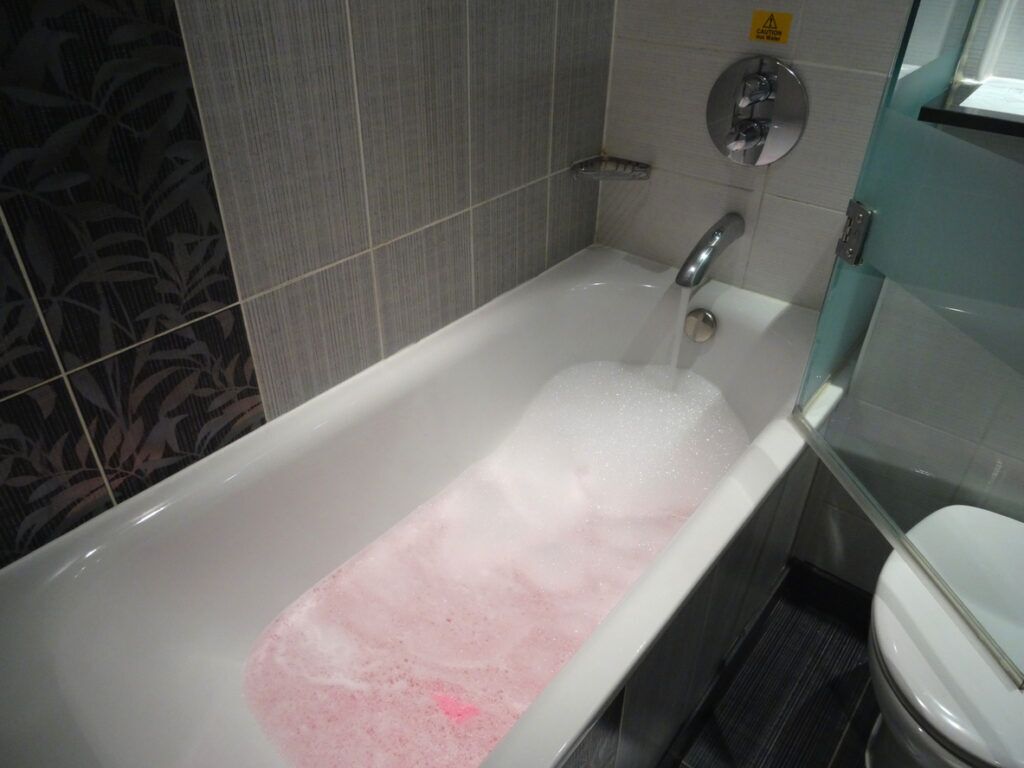Leading Reasons Behind Drainage Backflow in the Bathtub
Leading Reasons Behind Drainage Backflow in the Bathtub
Blog Article
Just about everyone maintains their own individual perception involving Why is Sewage Backing Up Into My Bathtub?.

Sewage backup in the tub can be a traumatic and unsanitary problem for any type of homeowner. Not only is it inconvenient, but it also positions major health and wellness threats and shows underlying problems with the plumbing system. Comprehending why sewer is coming up with the bath tub is vital for taking appropriate action to attend to the trouble efficiently.
Intro to the Issue
Recognizing the Trouble
When sewage draws back up into the bath tub, it's a clear indication of a trouble with the drainage system. The wastewater that must be moving away from your home is rather discovering its way back into your space, which can lead to considerable damage and carcinogen.
Possible Causes
A number of variables can contribute to sewage backup in the bathtub. From clogs in the sewage system line to issues with the plumbing infrastructure, determining the root cause is crucial for finding a remedy.
Common Reasons for Sewer Backup
Blockages in the Drain Line
Among the most common root causes of sewage back-up is an obstruction in the sewage system line. This can occur as a result of the buildup of debris, grease, or international objects in the pipelines, stopping correct flow and causing sewage to support into your bathtub.
Tree Root Intrusion
Tree roots seeking moisture and nutrients can penetrate drain lines with little splits or joints. Over time, these roots can expand and increase, creating substantial damages to the pipes and bring about sewage backup issues.
Aging Framework
Older homes may have dated plumbing systems that are extra susceptible to deterioration, cracks, and degeneration. As pipelines age, they become much more prone to leaks and blockages, enhancing the possibility of sewage back-up occurrences.
Heavy Rainfall or Flooding
Throughout periods of heavy rainfall or flooding, the sewer system might come to be overloaded with excess water, creating backups and overflows. This can result in sewer supporting into bathtubs and various other components inside the home.
Health And Wellness Risks Associated with Sewage Backup
Contamination of Supply Of Water
Sewer back-up can infect the water in your house, posturing a significant wellness threat to you and your household. Direct exposure to infected water can result in gastrointestinal concerns, skin infections, and various other illnesses.
Spread of Disease
Sewer consists of unsafe microorganisms, infections, and parasites that can cause a series of diseases, including hepatitis, cholera, and gastroenteritis. Entering contact with sewer or infected surface areas places you at risk of infection.
Mold Growth
Moisture from sewage backup can develop perfect problems for mold growth in your home. Mold and mildew spores can aggravate respiratory system troubles and create allergies in delicate individuals, making prompt cleaning important.
Indications of Sewage Backup
Foul Odors
Undesirable smells emanating from drains pipes or fixtures, particularly in the washroom, may suggest sewer backup problems. These smells are typically solid and persistent, signaling a problem that calls for immediate focus.
Slow Draining Fixtures
Tubs, sinks, and toilets that drain gradually or otherwise at all could be experiencing sewage back-up. If several components are influenced concurrently, it's likely that the problem stems from an usual point, such as the primary sewage system line.
Gurgling Sounds
Weird gurgling or gurgling sounds originating from drains when water is running in other places in the house are indicative of air caught in the plumbing system. This air accumulation can result from sewage back-up and should be explored immediately.
Immediate Actions to Take
Switching Off Water
In the event of sewer backup, it's vital to shut off the water to avoid more contamination and damages. Situate the primary water shutoff valve in your house and shut it off till the issue can be solved.
Contacting a Specialist Plumber
Handling sewer back-up is not a DIY task. Contact a licensed plumber with experience in dealing with sewage-related problems to examine the scenario and execute needed repair services or clean-ups.
Avoiding Contact with Infected Water
Until the sewage back-up is dealt with, prevent contact with infected water to stop the spread of bacteria and virus. Put on protective gear if you should be in the afflicted area and clean your hands extensively later.
Safety nets
Normal Upkeep of Sewage System Lines
Schedule regular assessments and maintenance of your drain lines to recognize and resolve prospective problems before they rise into major issues. This can include cleaning debris, inspecting for tree root breach, and fixing any type of broken pipes.
Mounting Backwater Valves
Think about setting up bayou shutoffs in your plumbing system to stop sewer from receding into your home throughout periods of heavy rainfall or flooding. These shutoffs immediately close when water draws back up, safeguarding your residential or commercial property from contamination.
Correct Disposal of Home Waste
Avoid flushing anything apart from toilet paper and human waste down the bathroom to prevent blockages and obstructions in the sewage system line. Dispose of oil, oil, and other home chemicals appropriately to minimize the risk of plumbing issues.
Cleaning Up After Sewage Backup
Disinfection Procedures
Completely sanitize and sanitize influenced locations after sewage backup to remove unsafe microorganisms and avoid mold and mildew growth. Use proper cleaning products and protective equipment to make sure secure and efficient cleaning.
Repair of Affected Locations
Fix any type of damage to floor covering, wall surfaces, or fixtures triggered by sewer backup. Depending on the degree of the damage, you may need to replace carpets, drywall, or various other products to recover your home to its pre-loss problem.
Why Is Water Backing Up in My Bathtub When I Flush My Toilet?
What to do about a sewer line clog
First, don’t bother with plunging. No amount of plunging will dislodge the clog in a sewer line. The clog is too far away. Plungers are for clogs in the toilet itself, not the sewer line. Plus, the most likely causes of a sewer clog are:
Tree roots Flushed toys or feminine products Grease buildup Those items don’t move easily. And in the case of tree roots, the roots need to be cut out of the pipe and the pipe will need to be repaired.
You’ll need a closet auger. A closet auger is a type of plumber’s snake with a protective cover to keep from scratching the delicate porcelain toilet. If the clog is further down, you may need to remove the toilet or use one of your cleanouts to get to the clog.
We also recommend doing a video inspection of the drain to ensure that the cause of the clog has been completely removed. Otherwise, you could have the same problem again in a few days or weeks.
https://mspplumbingheatingair.com/blog/why-is-water-backing-up-in-my-bathtub-when-i-flush-my-toilet

Do you enjoy more info about ? Try leaving a remark further down. We'd be pleased to know your insights about this page. In hopes to see you back again in the future. Do you know about somebody else who is inquisitive about the topic? Take a moment to share it. I love your readership.
Visit
Report this page